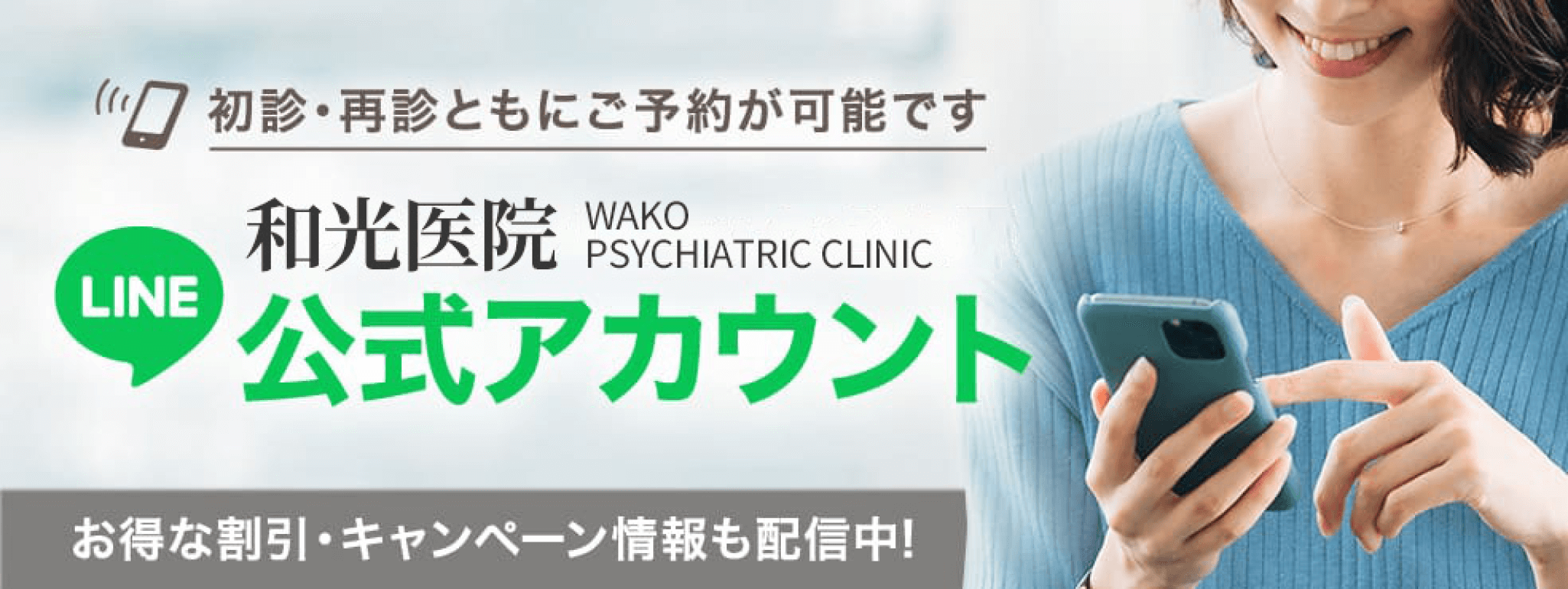ブログ
対人相互性の障害を本人が自覚することは、結構難しい、名古屋市千種区の児童精神科医が解説
対人相互性の障害を本人が自覚することは、結構難しい、名古屋市千種区の児童精神科医が解説
こんにちは、名古屋市千種区 児童精神科専門クリニック、医療法人永朋会 和光医院、加藤晃司です。
今回は、対人相互性の障害を本人が自覚することは、結構難しい、について解説します。
ASD、PDDの中核症状は、対人相互性の障害です。
対人相互性の障害とは、人と人との間で適切な社会的関係を築く力が著しく乏しい、または歪んでいる状態を指します。特に自閉スペクトラム症(ASD:Autism Spectrum Disorder)などの発達障害でよくみられる特徴の一つです。
対人相互性の障害の主な特徴:
感情の共有が困難
・他者と喜怒哀楽を分かち合うことが少ない
・「うれしいね」「すごいね」といった共感的反応が乏しい
他者への関心が低い・反応が一方的
・他人の気持ちを読み取ったり、想像したりすることが苦手
・一方的な会話や行動になりやすい(例:自分の興味の話を一方的に話す)
非言語的コミュニケーションの困難
・視線が合わない、表情の乏しさ、ジェスチャーが少ないなど
・相手の顔色や雰囲気の変化を読み取ることが難しい
人間関係の築き方に偏りがある
・年齢相応の友人関係を築くのが難しい
・極端に一人遊びを好むか、逆に距離感なく関わろうとする(例:初対面の人に抱きつく)
この対人相互性の障害を、自分で自覚できるかというと、なかなか難しいことが多いです。
他人の心を予測する力ですが、それができているかどうかは、相手に確認してみないと分かりません。
自分で苦手だと思っていても、割とやれている方もいれば、自分は全然大丈夫と思っていても、かなり障害の程度が強い場合があります。
診断がついたとしても、それを知識では理解できても、感覚的に理解することは難しいことが多いです。
だから対人相互性の障害は他者から指摘されて、受診にいたることが多いです。
自覚がまったくないと、治療も難しいことが多いです。
やはり多少なりとも自分の問題点として自分で認識がないと、自分を変えることはどんなことにしても難しいからです。
自己分析をすること自体も、本来はつらい作業なので、意志がないと続かないし、意味がありません。
意志と意欲があれば、ASDの方でもカウンセリングを通じて、自分とは何か、他者と自分の関係とは何かを扱うことによって、結果的に対人相互性の障害を乗り越えていく人もいます。
このようなことで悩みがあれば、当院へご相談ください。
当院ホームページはこちらより
ご予約は公式ライン、ホームページから可能です。
友達追加はこちらから↓
当院インスタグラムはこちら
https://www.instagram.com/wako_iin/
子どものためのメンタルクリニック
医療法人永朋会 和光医院
児童精神科・精神科・心療内科
〒464-0092 愛知県名古屋市千種区茶屋が坂1丁目12番2号
電話 : 052-712-1777
地下鉄名城線「茶屋ヶ坂」駅 1番出口より徒歩3分
地下鉄名城線「砂田橋」駅 1番出口より徒歩10分
It’s Often Difficult for Individuals to Recognize Their Own Social Reciprocity Impairments
Explained by a Child Psychiatrist in Chikusa Ward, Nagoya
Hello, I’m Dr. Koji Kato, child psychiatrist at Wako Clinic, a specialty mental health clinic located in Chikusa Ward, Nagoya.
Today, I’d like to discuss the topic:
“It’s often difficult for individuals to recognize their own impairments in social reciprocity.”
What Is Social Reciprocity Impairment?
One of the core symptoms of ASD (Autism Spectrum Disorder) and PDD (Pervasive Developmental Disorders) is impairment in social reciprocity.
This refers to a significantly reduced or distorted ability to build appropriate social relationships with others. It’s one of the hallmark features seen in individuals with developmental disorders like ASD.
Key Features of Social Reciprocity Impairments:
Difficulty sharing emotions
・Struggles to share joy, sadness, or excitement with others
・Shows little empathetic reaction, such as saying “That’s great!” or “I’m happy for you”
Low interest in others / One-sided communication
・Struggles to understand or imagine what others are thinking or feeling
・Tends to have one-sided conversations (e.g., talking only about their own interests)
Difficulty with nonverbal communication
・Limited eye contact, facial expressions, and gestures
・Struggles to read the mood or facial expressions of others
Unbalanced approach to relationships
・Finds it hard to form age-appropriate friendships
・May strongly prefer solitary activities or show inappropriate closeness (e.g., hugging strangers)
Why It’s Hard to Be Self-Aware of These Issues
Being able to anticipate the thoughts and emotions of others is key to social reciprocity.
However, we can’t easily tell whether we’re doing that well or not unless someone gives us feedback.
Some individuals may think they’re not good at it, but actually manage quite well. Others may feel there’s no issue at all—yet in reality, show significant impairments.
Even when someone receives a diagnosis and understands it intellectually, it’s often difficult to internalize the concept on a sensory or emotional level.
As a result, many people come to see a psychiatrist only after someone else points out their interpersonal difficulties.
The Challenge of Change Without Self-Awareness
Without any insight into the problem, therapy becomes very difficult.
You need at least some level of self-recognition in order to initiate change.
Self-reflection is inherently emotionally taxing, and without the motivation or will to work on oneself, therapy tends to be ineffective.
However, if the person does have motivation and a desire for self-understanding, they can make meaningful progress.
Even individuals with ASD can gradually overcome interpersonal challenges through counseling focused on understanding oneself and one’s relationship with others.
Final Message
If you or someone you know is struggling with social interaction or lacks insight into these difficulties, please don’t hesitate to consult with our clinic.
We’re here to help provide a path toward self-awareness and personal growth.
受診される方へ
初めて受診される方
当院は予約制をとっておりますが、初診の場合は若干のお時間をいただくこととなり、お待ちいただくことがあります。スムーズにご案内する為に、WEB問診のご利用をおすすめいたします。
WEB問診はこちら >
初診予約は電話にてお願いします。
再診される方
お電話もしくは予約システム(チェック・オン)から予約を取ることもできます。予約の変更や取り消しをご希望の場合には、診療時間内に受付にお電話いただくか、予約システムから変更・取り消しを行ってください。
パソコン・携帯から簡単にご予約できます。
和光医院 診療時間のご案内

【診療時間】
午前 9:00〜13:00
午後 15:00〜18:00
土曜 9:00〜14:00
【休診日】 日・祝日
患者様へのご案内
- 明細書について:当院では、療養費規則に基づき明細書の発行を無料で行っています。
- 一般名による処方について:後発医薬品が存在する場合は、商品名ではなく一般名(有効成分名)で処方することがあります。
- 医療情報の活用について:当院では、安心な医療を提供する為、オンライン資格確認や電子処方箋データ等の情報を活用して診療を行っています。


